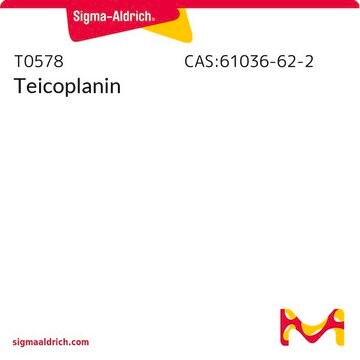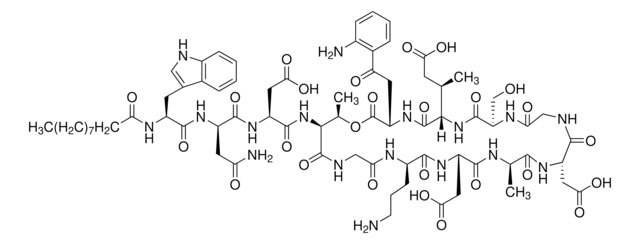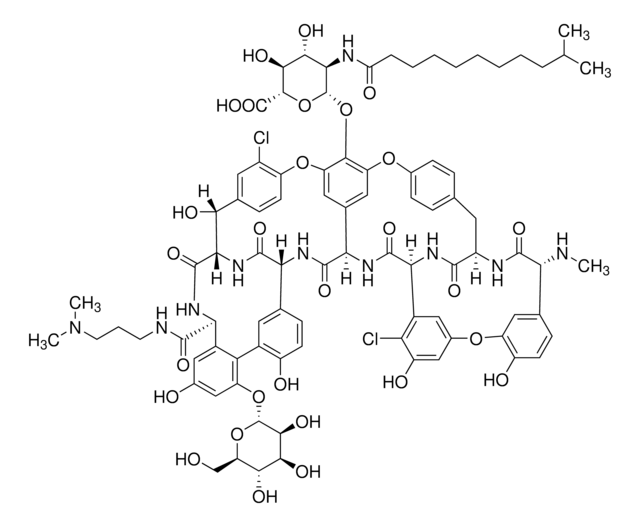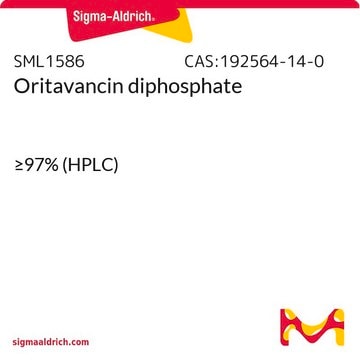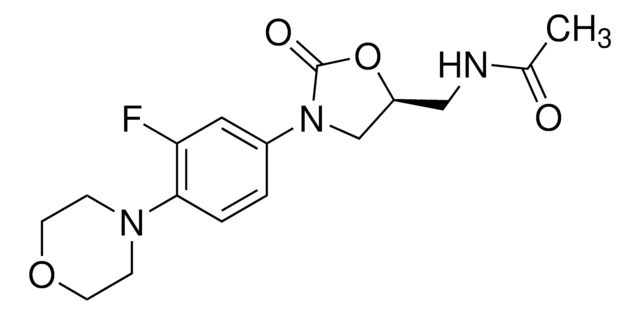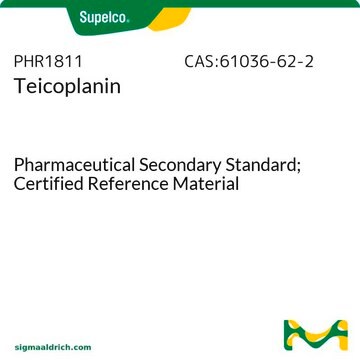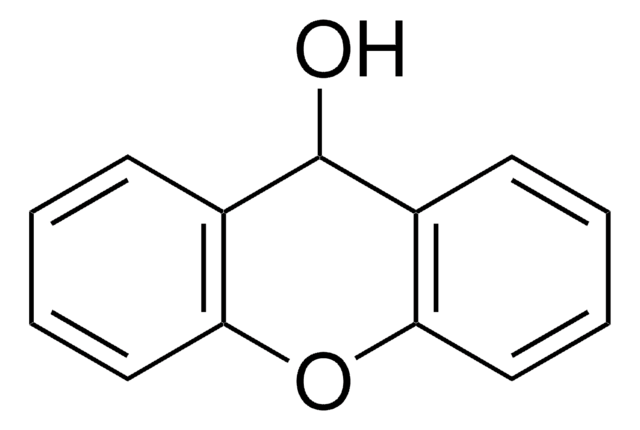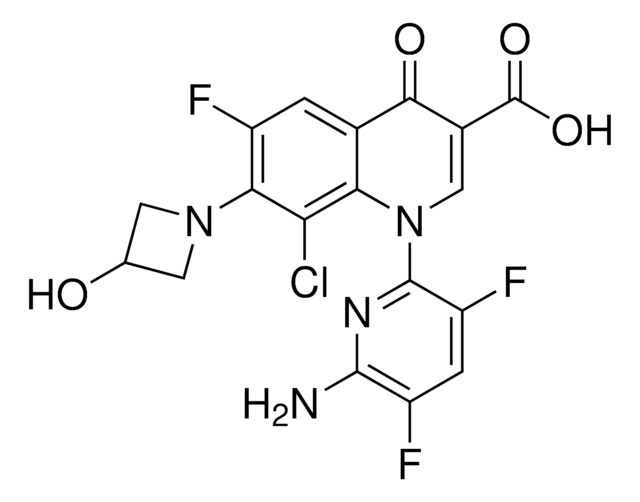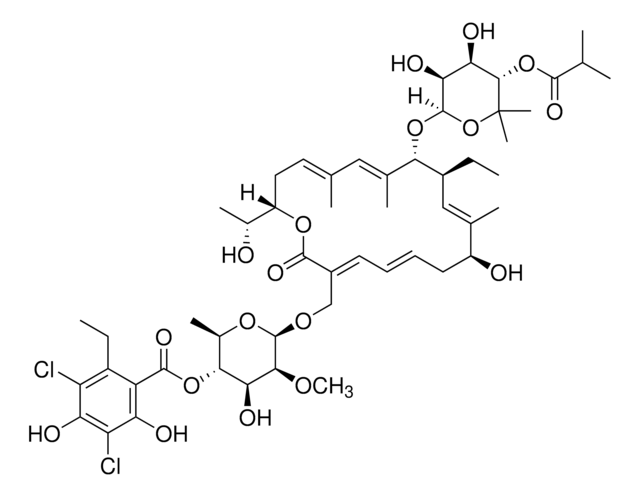D2446
Daptomycin
cyclic lipopeptide antibiotic
Synonym(s):
Cubicin, Daptomycin, 9-L beta-Aspartic Acid, Dapcin
About This Item
Recommended Products
Quality Level
Assay
≥90% (HPLC)
form
powder
solubility
methanol: 5 mg/mL
DMSO: soluble
ethanol: soluble
methanol: soluble
antibiotic activity spectrum
Gram-positive bacteria
Mode of action
DNA synthesis | interferes
protein synthesis | interferes
storage temp.
−20°C
SMILES string
CCCCCCCCCC(=O)N[C@@H](Cc1c[nH]c2ccccc12)C(=O)N[C@H](CC(N)=O)C(=O)N[C@@H](CC(O)=O)C(=O)N[C@H]3[C@@H](C)OC(=O)[C@H](CC(=O)c4ccccc4N)NC(=O)[C@@H](NC(=O)[C@@H](CO)NC(=O)CNC(=O)[C@H](CC(O)=O)NC(=O)[C@@H](C)NC(=O)[C@H](CC(O)=O)NC(=O)[C@@H](CCCN)NC(=O)CNC3=O)[C@H](C)CC(O)=O
InChI
1S/C72H101N17O26/c1-5-6-7-8-9-10-11-22-53(93)81-44(25-38-31-76-42-20-15-13-17-39(38)42)66(108)84-45(27-52(75)92)67(109)86-48(30-59(102)103)68(110)89-61-37(4)115-72(114)49(26-51(91)40-18-12-14-19-41(40)74)87-71(113)60(35(2)24-56(96)97)88-69(111)50(34-90)82-55(95)32-77-63(105)46(28-57(98)99)83-62(104)36(3)79-65(107)47(29-58(100)101)85-64(106)43(21-16-23-73)80-54(94)33-78-70(61)112/h12-15,17-20,31,35-37,43-50,60-61,76,90H,5-11,16,21-30,32-34,73-74H2,1-4H3,(H2,75,92)(H,77,105)(H,78,112)(H,79,107)(H,80,94)(H,81,93)(H,82,95)(H,83,104)(H,84,108)(H,85,106)(H,86,109)(H,87,113)(H,88,111)(H,89,110)(H,96,97)(H,98,99)(H,100,101)(H,102,103)/t35-,36-,37-,43-,44+,45-,46+,47+,48+,49+,50-,60+,61+/m1/s1
InChI key
DOAKLVKFURWEDJ-FAZHXZQASA-N
Related Categories
Application
Biochem/physiol Actions
Other Notes
Storage Class Code
11 - Combustible Solids
WGK
WGK 3
Flash Point(F)
Not applicable
Flash Point(C)
Not applicable
Choose from one of the most recent versions:
Certificates of Analysis (COA)
Don't see the Right Version?
If you require a particular version, you can look up a specific certificate by the Lot or Batch number.
Already Own This Product?
Find documentation for the products that you have recently purchased in the Document Library.
Customers Also Viewed
Our team of scientists has experience in all areas of research including Life Science, Material Science, Chemical Synthesis, Chromatography, Analytical and many others.
Contact Technical Service